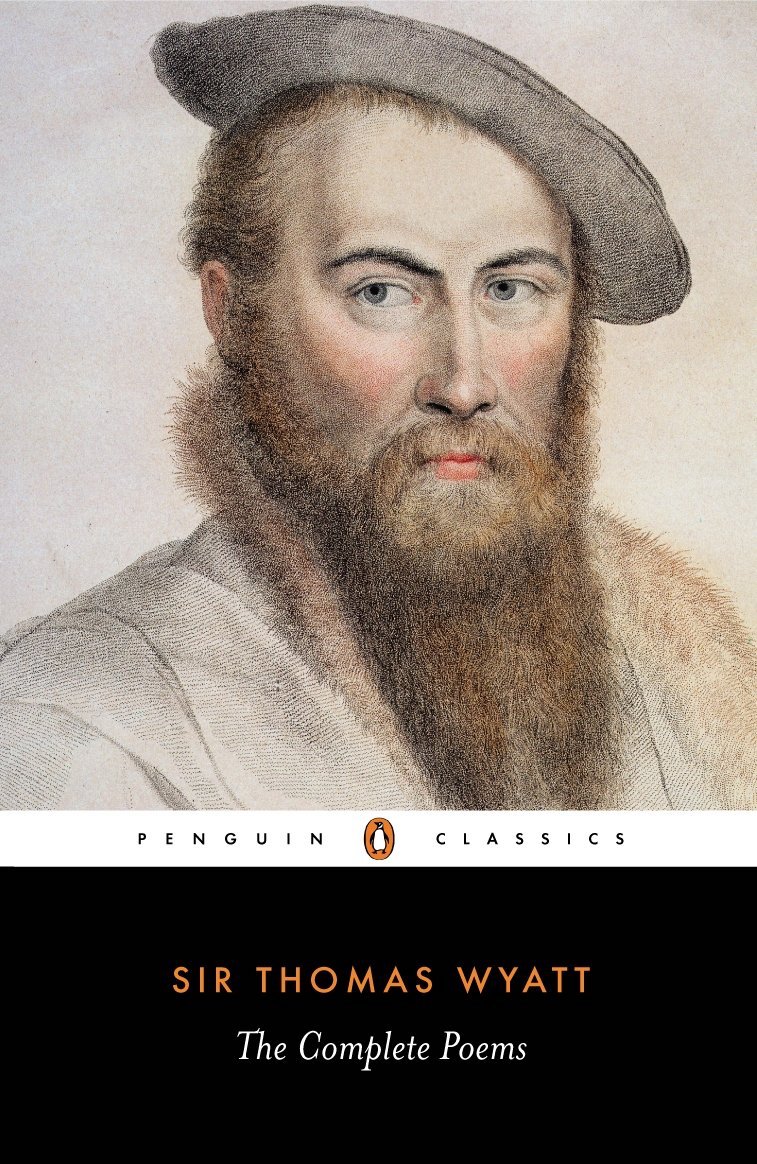The first time I read the poem we call “They Flee From Me” was in the late nineteen-seventies, when I encountered it in a class on Renaissance poetry. This was years before I wrote a poem myself, years before I knew that Wyatt’s early sixteenth-century lyric was also one of George Oppen’s favorite poems; he had recited it silently to himself over and over during World War II, trapped in a foxhole beside two dead companions, as he waited many hours to be rescued: “They flee from me that sometime did me seek / With naked foot, stalking in my chamber.”
My first reading also took place years before I knew that, when Wyatt wrote the poem down, “They Flee From Me” had virtually no punctuation. But Wyatt was no Emily Dickinson, flouting or even ignoring conventions; we English-speakers simply did not use spelling or punctuation with any regularity until the 18th century, and Wyatt’s text is unremarkable. Still, how thrilling it is to read the opening of the last of the poem’s three stanzas as Wyatt punctuated it: “It was no dream I lay broad waking.”
Is that an iambic pentameter line? The gorgeous line before it certainly is, punctuated or not (“And softy said, ‘Dear heart, how like you this?’”), and Wyatt is known as one of the popularizers of that line in English. It might have taken modern ears to hear what Wyatt was doing, but I didn’t think the poet was nodding when I first read “They Flee From Me” more than forty years ago, and I don’t think so now. For whether punctuated (as it usually is) or not—
It was no dream: I lay broad waking.
But all is turned thorough my gentleness
Into a strange fashion of forsaking
—that line stabs the poem with a prosaic flatness hitherto unavailable in “They Flee From Me”; it takes what might otherwise be read as Petrarchan allegory and says this happened, whether it happened or not.
I’ve never much cared if a poem is metered or not, rhymed or not, and I found the twentieth century’s transformation of these formal tools into weapons by and large distracting. All poems live or die in the concerted arrangement of syllables into patterns that are alternatively broken or reinforced. Wyatt taught me that.




